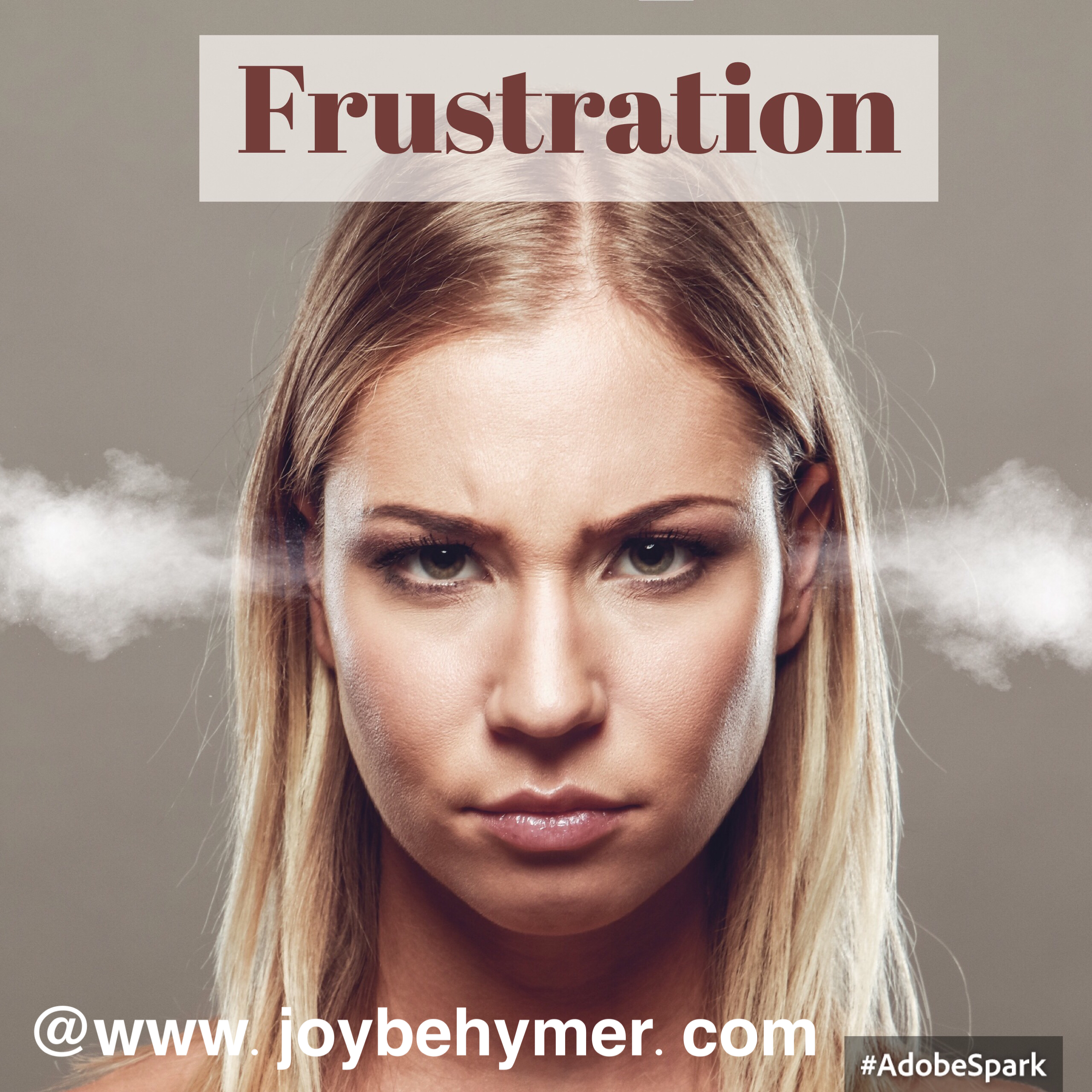
One common emotion we may battle is frustration. Frustration leads to tension and stress. Once we feel stressed it can take a little longer to come back from that feeling. But if we can catch ourselves as soon as we get frustrated, we can work with our triggers and reactions more readily.
Catching frustration early may take a little practice in paying attention to how often and how easily we get frustrated. When we get frustrated, we are usually irritated or annoyed that something isn’t going the way we either want it to or expect it to. That agony can build into a tantrum. In the area I grew up in, I frequently heard people refer to reaching these levels of anger as “pitching a fit.”
Before we escalate to that level of frustration and stress, we can take a moment when we first feel that tension and frustration building to take a few deep breaths. We can stop and ask ourselves if we can let go a little bit of our expectations in that moment or situation. Often I’ve noticed that when I can just walk away from the situation, either it ends up resolving itself or I am able to see it a little differently.
Giving ourselves a little space between what is frustrating us and our reactions can give us time to calm down. That mini-break can create an opportunity to understand whether or not what we are getting frustrated about really is a big deal. It’s like the popular saying don’t sweat the small stuff. Many times we make a bigger deal out of things than needs to be made. Especially if they’re causing us stress and anger.
There are times that we can do little about big frustrating circumstances. All we have control over is how it makes us feel. When we can’t control things we tend to become frustrated. Other times we just want things to get done fast and done the way we want them. If we can let go of how things unfold, we can allow more peace and understanding into our perspective. Or simply create a calmer, clearer state of mind to deal with what is going on.
Frustrations like hurrying and worrying are habits we create. Often those build, and frustration becomes our initial reaction when things don’t go our way. Being aware of when we get frustrated can show us how often we are reacting that way. The more we can recognize this reaction, the more we can start retraining the mind to have more pleasant reactions.
A little helpful hint to keep in mind when we are dealing with our frustrations is that often we want the issue to be resolved fast. Remembering that things can take time to work out for the better outcome can help you loosen your grip on being frustrated. If things go too fast, they may not work properly and we may end up with a bigger disaster on our hands.
I’ve often found myself feeling frustrated with technology. Although I use technology frequently, it isn’t always my strong suit. I’ve had to learn much patience to keep my stress levels and frustration down. When I’m experiencing glitches I have learned the best thing I can do in that moment is to walk away and spend my energy doing something else. I may choose another task to work productively at, or I may just need to take a short break.
Once I spend some time away from what I am frustrated with, either I find I can deal with it better because I have gained a calmer state of mind, or it miraculously works itself out. It takes me longer and probably wastes more energy to try to figure out what the problem was than it does to accept I simply needed some space between the issue and my frustration.
Frustration is like anger and other negative emotions that may feel hard or tricky to deal with. As we practice our reactions and awareness more, we can catch our frustration earlier and balance it with more positive emotions. It certainly can lessen our stressors and the way our frustration makes us feel!
